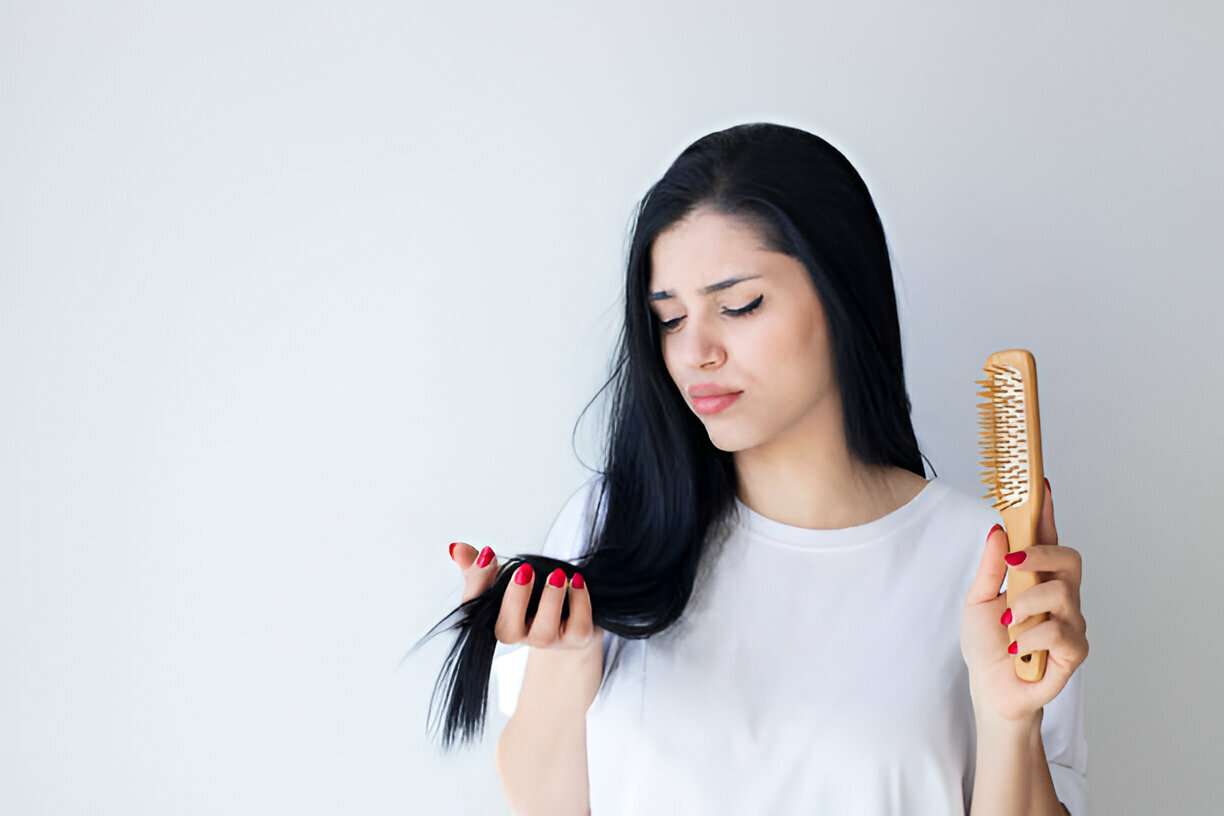Noticed more hair fall during the rainy season? You’re not alone. Monsoon brings high humidity, fungal infections, and scalp imbalance — all of which can trigger excessive shedding. The damp weather weakens hair roots, increases frizz, and makes the scalp prone to oiliness and dandruff.
But with the right care, diet, and support, you can control seasonal hair fall effectively.
But with the right care, diet, and support, you can control seasonal hair fall effectively.
1. Eat Hair-Friendly Foods
A healthy diet is the foundation of strong, healthy hair.
Include in your diet:
- Proteins: Eggs, paneer, dal, tofu
- Iron: Spinach, beetroot, dates
- Omega-3s: Walnuts, flax seeds, chia seeds
- Biotin: Sweet potatoes, almonds, seeds
- Vitamin C: Amla, citrus fruits — helps with iron absorption
Stay hydrated to prevent scalp dryness and hair brittleness.
2. Adjust Your Hair Care Routine
Your hair needs extra attention during monsoon.
Tips to follow:
- Shampoo 2–3 times a week with a mild, anti-fungal or sulfate-free shampoo
- Dry your scalp thoroughly after washing or getting wet in the rain
- Avoid tying wet or damp hair
- Use a leave-in serum to manage frizz
3. Add Hair Supplements & Growth Serums
Your hair needs extra attention during monsoon.
Tips to follow:
- Shampoo 2–3 times a week with a mild, anti-fungal or sulfate-free shampoo
- Dry your scalp thoroughly after washing or getting wet in the rain
- Avoid tying wet or damp hair
- Use a leave-in serum to manage frizz
4. Protect Your Hair Outdoors
- Cover your hair during rain
- Use a microfiber towel to gently dry your hair
- Avoid heat styling and chemical treatments during this season
Final Thoughts
Monsoon hair fall is temporary — with the right food, care, and support products, your hair can recover well. If you’re experiencing continuous or patchy hair loss, it’s time to consult an expert.

